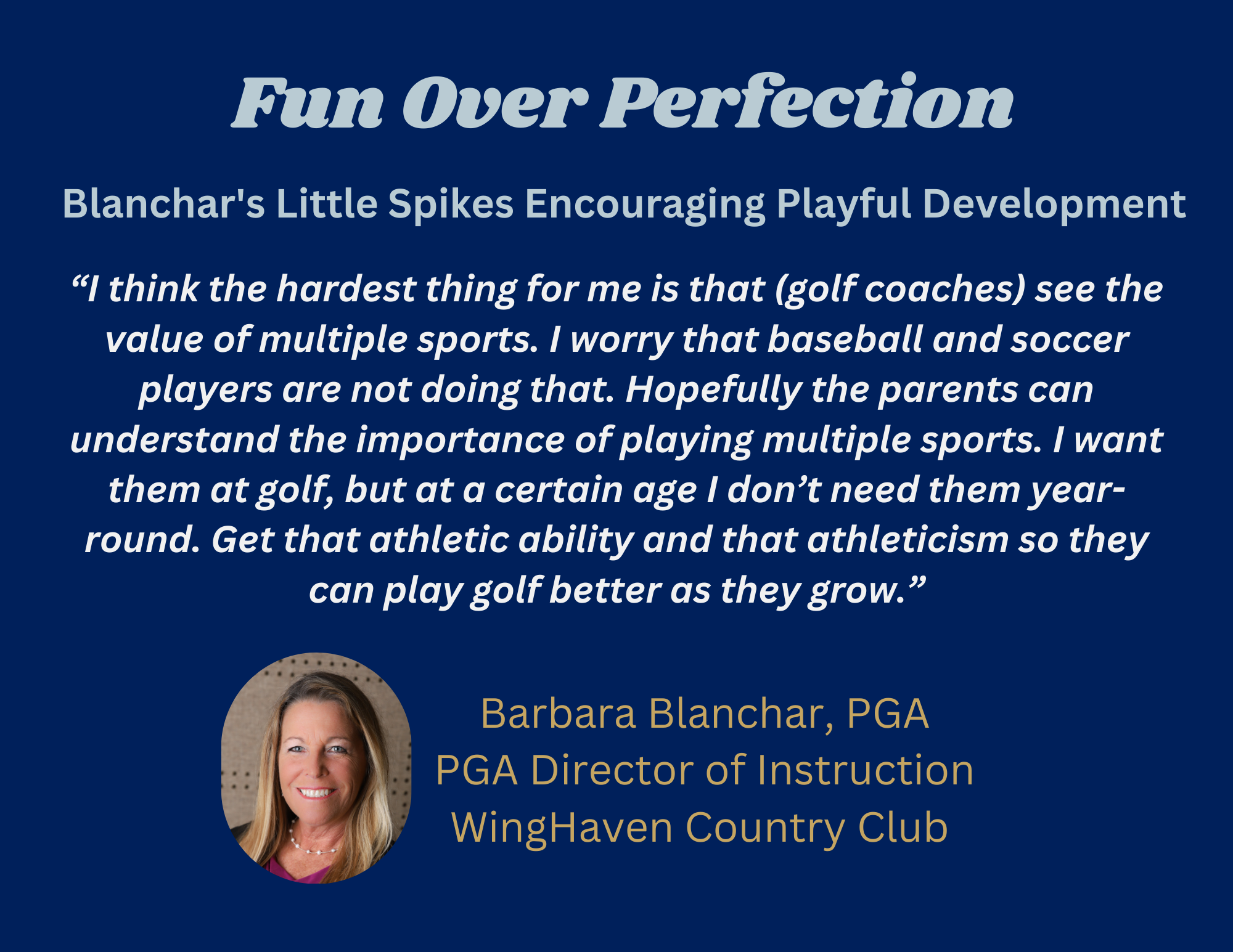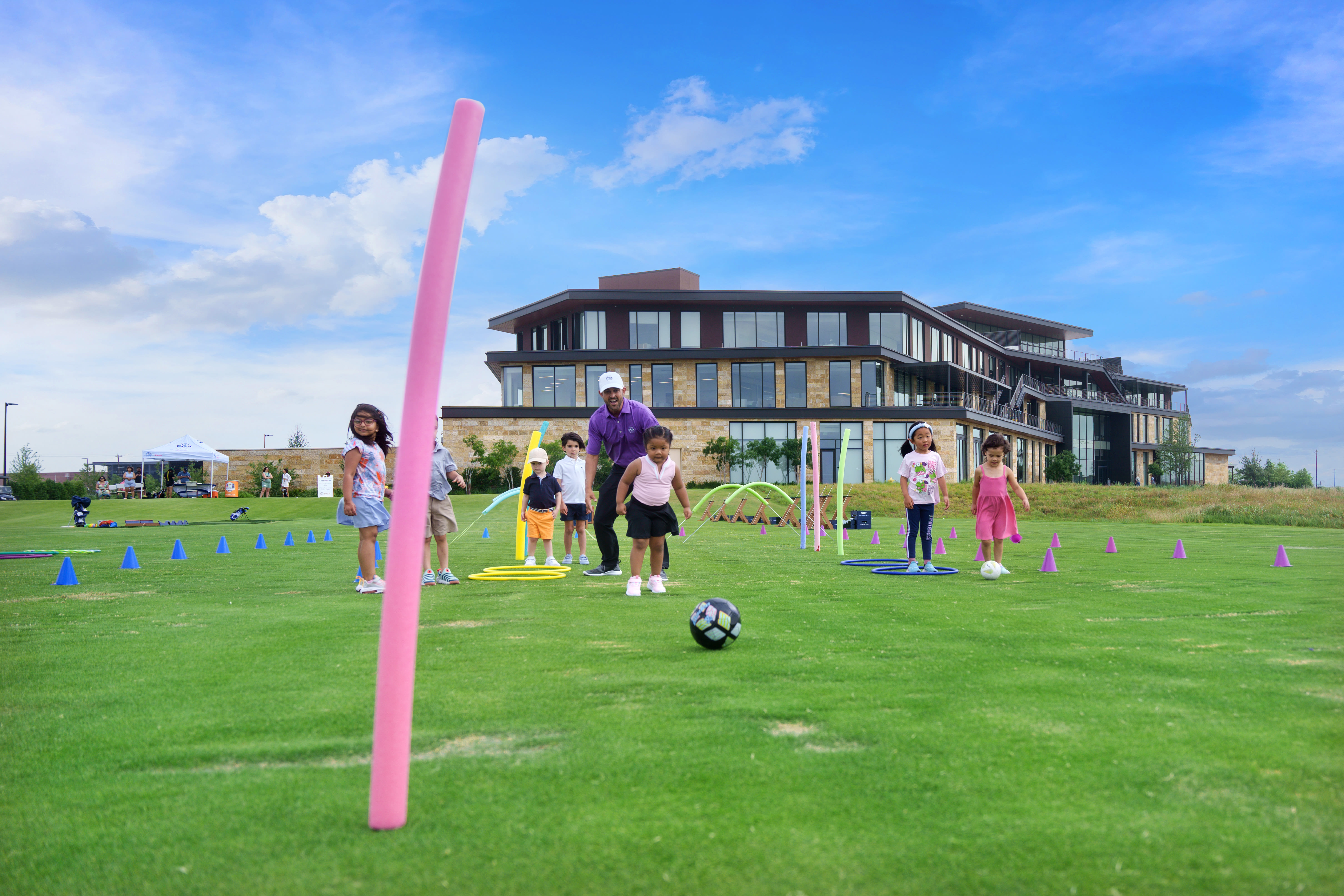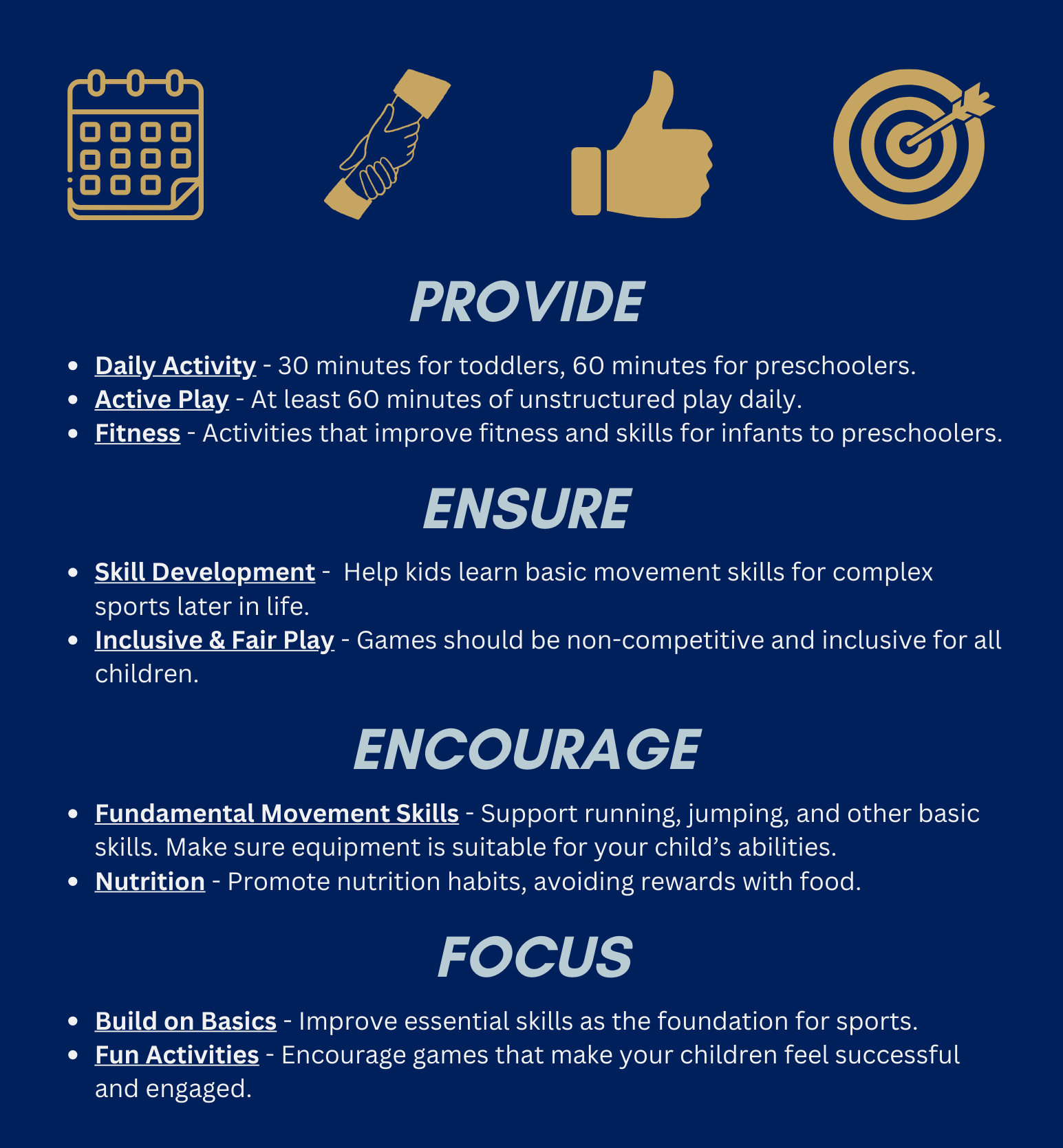Getting Started with Active Start
Overview
- Ages: 0-6 (Please note: Ages are guidelines, not restrictions)
- Primary Focus: Encourage unstructured physical activity for at least 60 minutes daily. Avoid long sedentary periods unless sleeping.
- Competition Level: None. Children at this age are too young for competitive play.

Skills and Development
- Athletic Skills: Children should be encouraged to run, jump, hop, twist, stop, and catch balls with both hands.
- Technical Skills: Allow children to experiment with the club and ball without pressure. Learning should be exploratory.
- Psychological Development: Encourage trying new challenges, giving effort, and following instructions.
- Social Development: Focus on sharing, expressing gratitude, and enjoying time with friends. Parents play a pivotal role in providing praise and approval.

Play Guidelines
- Practice: No formal practice is required; focus on providing a positive experience based on the child’s interest.
- Equipment and Safety: Prioritize safety over specific equipment.
- Where to play: Suitable environments include golf courses, parks, mini putt, backyards, or even living rooms, aligned with the child's ability.

Explore Additional Stages:
